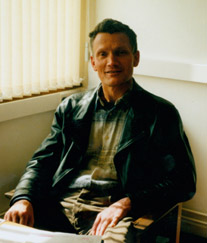

Musicologist David Osmond-Smith, who died on 31 May at the age of 60, was the foremost authority on post-war Italian art music. But his writing extended to many other areas, notably musical aesthetics and ideology, the sociology of music, and hermeneutics.
In 1973 David turned up on the doorstep of the University of Sussex to join its fledgling Music department. He devoted his entire teaching life to the institution, being made a Professor of Music in 1994, and, after early retirement, remaining a research professor.
The department's strong reputation for 20th-century and contemporary music study, as well as its innovative courses with their dual emphases on praxis and critical thinking, is in large part due to David.
He demanded much from his students, not suffering laziness gladly, but rewarded their commitment with invaluable insights, a font of enthusiasm and a remarkable sense of music's roles and functions in history and society.
His idea of teaching them the importance of the minuet in fostering 18th-century social life (for instance) was not to force them to study dozens of musical scores, but to get them to dance one. (One dreadlocked student remarked later that it was the 'sexiest' dance she'd ever done.)
David was an extrovert and galvanising presence on the stage. He conducted the University's Symphony Orchestra, Chorus and Chamber Choir for many years, and he mounted extraordinary student productions of The Threepenny Opera and King Arthur.
David was extremely generous with his time. As a personal tutor, and during his spell as sub-Dean of the School of English and American Studies, he would devote hours and hours to helping students with problems, personal as well as academic.
Astonishingly, David had battled with the HIV virus and related illnesses, and survived, for about 25 years. It nearly claimed him in 1996 when he developed severe toxoplasmosis in the brain, leaving him partially paralysed and reliant on a walking stick for the rest of his life.
His painfully slow progress across campus (ever nattily dressed) was always conducted with immense dignity and patience. The students awaiting his arrival learned to be patient too. He was worth waiting for.
Professor Martin Butler, Music